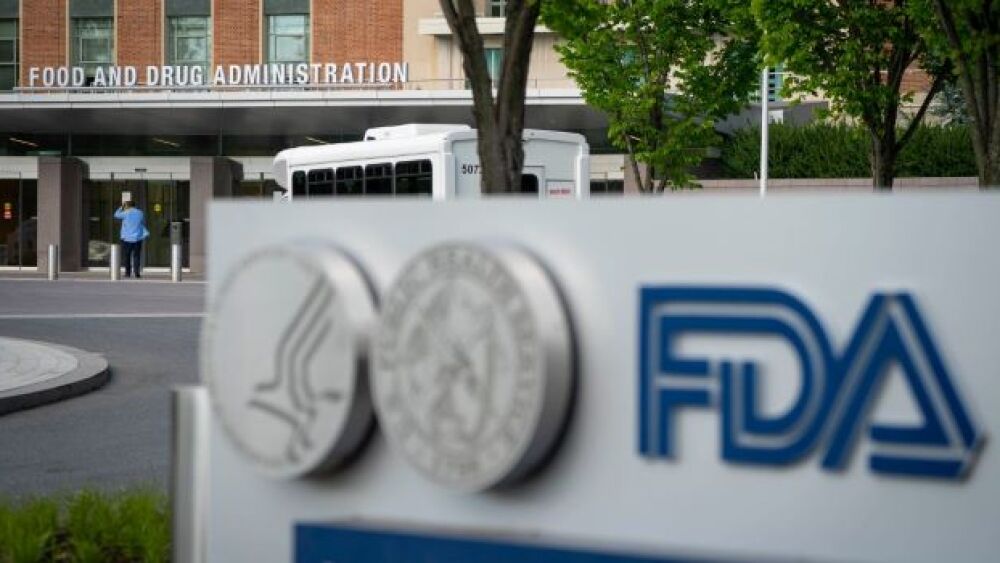January has been a largely quiet month for PDUFA dates on the U.S. Food and Drug Administration (FDA)’s calendar. There were two dates for the entire month, and one of those has been moved back to April. Here’s a look.
Sarah Silbiger/Getty Images
January has been a largely quiet month for PDUFA dates on the U.S. Food and Drug Administration (FDA)’s calendar. There were two dates for the entire month, and one of those has been moved back to April. Here’s a look.
Bristol Myers Squibb’s Mavacamten for Symptomatic Obstructive Hypertrophic Cardiomyopathy
Bristol Myers Squibb had a target action date of January 28, 2022, for its New Drug Application (NDA) for mavacamten for symptomatic obstructive hypertrophic cardiomyopathy (oHCM). However, on November 19, 2021, BMS announced that the FDA had extended the NDA review to April 28, 2022. This allows the agency enough time to review information related to updates to a proposed Risk Evaluation Mitigation Strategy (REMS), which was included in the initial application. No additional data or studies were requested.
At the time, Dr. Samit Hirawat, Executive Vice President, Chief Medical Officer, Global Drug Development, for BMS, said, “We are confident in the profile of mavacamten. This first-in-class cardiac myosin inhibitor demonstrated clinically meaningful improvements in symptoms, functional status, and quality of life in symptomatic oHCM patients in the pivotal EXPLORER-HCM trial. We look forward to continuing to work closely with the FDA to bring this important medicine to patients.”
The drug is a novel, oral, allosteric modulator of cardiac myosin. HCM is the most common inherited heart disease. It can be a chronic, debilitating and progressive illness in which patients experience shortness of breath, dizziness and fatigue. However, it can also have much more serious, life-altering complications, including heart failure, arrhythmias, stroke and sudden cardiac death. The most common cause of HCM is mutations in the heart muscle proteins of the sarcomere. In the U.S. and Europe, there are about 160,000 to 200,000 people diagnosed with symptomatic obstructive HCM. There are no existing effective drug treatments beyond treating symptoms.
The NDA submission was built on data from the pivotal Phase III EXPLORER-HCM trial. In it, mavacamten demonstrated a “robust treatment effect” with clinical improvements in symptoms, functional status, and quality of life. It also relieved left ventricular outflow tract obstruction. The drug is believed to work by decreasing cardiac muscle contractility by inhibiting excessive myosin-actin cross-bridge formation, which causes hypercontractility, left ventricular hypertrophy and decreased compliance.
Azurity’s Zonisamide for Partial Seizures in Epilepsy
Eton Pharmaceuticals had a target action date of January 29 for its zonisamide oral suspension. In a November 15, 2021, third-quarter report, the company said they believed the only item holding up FDA approval was an inspection of its European manufacturer. At that time the FDA had not conducted nor scheduled the onsite inspection.
On July 30, 2020, Eton announced it had submitted an NDA for the drug for the treatment of partial seizures in patients with epilepsy. Zonisamide is widely used as a capsule to treat partial seizures but had not been approved by the FDA in liquid form.
At the time, Sean Brynjelsen, Chief Executive Officer of Eton, stated, “We know there is strong demand for liquid zonisamide from neurologists and patients, and we look forward to working with the FDA to get the product approved and available to patients as soon as possible.”
In February 2021, Azurity Pharmaceuticals acquired Eton’s neurology portfolio, including lamotrigine (ET-105), topiramate (ET-101) and zonisamide (ET-104). Although the FDA approved Azurity’s Eprontia (topiramate), an oral solution as a monotherapy and as adjunctive treatment for partial-onset or primary tonic-clonic seizures and prevention of seizures in patients two years of age and older, nothing has been announced yet about zonisamide.





